Local Celebrity in Imsil Kim Yong-taik
Seomjingang River Poet, Kim Yong-taik Deemed the Seomjingang River Poet, Kim Yong-taik is leading a life close to nature and enjoying a more relaxed time after retiring as a teacher of an elementary school. The mundane things from his daily life add up to become beautiful poems. He finds happiness in his daily life surrounded by nature, including the flowing river, trees and wind. Let’s explore his life and his happy poetry.
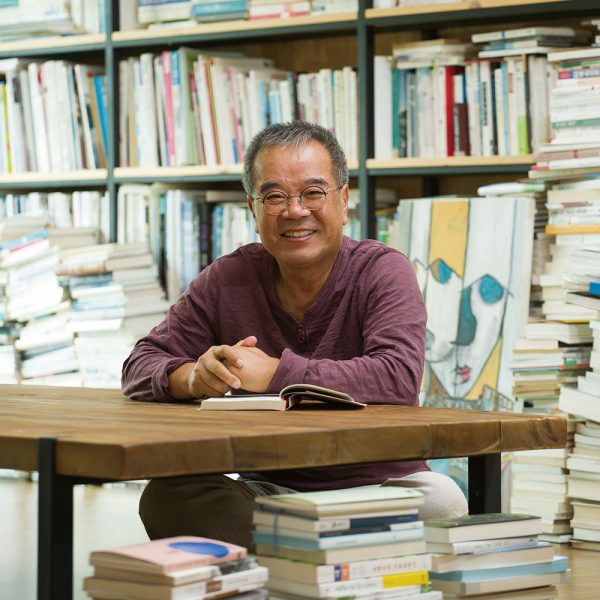
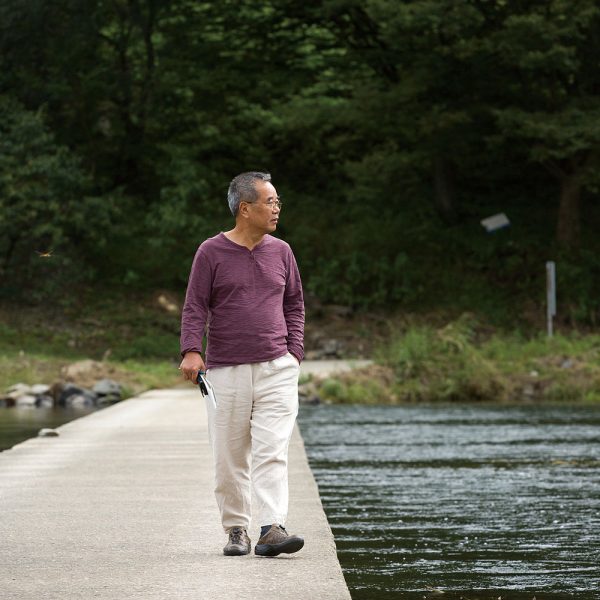
Poetry Inspired by Nature
There is something special about the poet’s nick name. The Seomjingang River Poet was named after the beautiful winding river flowing throughout the southern part of Korea, including the wide southern plains and Jirisan Mountain.
“I didn’t learn how to write poems, nor did I write them with a purpose. I just listened to the sound of nature, discovered myself while reading books, and realized the truth lied within myself – poetry was created in the process.”
Born in Jinmoe Village, in Imsil near the Seomjingang River, Kim was a teacher at Deokchi Elementary School, also his alma mater. He started his literary career in 1982, when he published a series of poetry under the theme of the Seomjingang River. He depicted nature and life in his poems with a calm tone and criticized society with satire and humor. As a poet, he was inspired by his hometown and nature. The home where he and his poetry were born was transformed into the Kim Yong-taik Literary House.
“My father built this house and named it Gwallanheon, meaning a place that overlooks the flowing river. I later revised the name to Hoimunje, meaning a house where pieces of writing gather.”
One can easily assume that his hope is for the house to be a place that is frequently visited and loved by people who want to enjoy literature.
A Happy and Free Life Where Everything Looks New Everyday
After retiring in 2008, Kim leads a busy life. He is fully booked all month, as he is frequently invited to give lectures. “I mainly talk about how to lead a happy life. Everybody wants success, but life becomes miserable once you live by someone else’s standard. If you want to be happy, you should stop comparing yourself with others and find the value of your own life.” In order to do this, one needs to change his or her priority in life, he emphasizes. He realized that how he lives, rather than where he lives, is important, and he holds firm to this value. Kim stresses that the warmth and value of one’s life should be found within the community where he or she belongs. After his retirement, Kim became closer with nature. Every morning he takes a photo of the 300-year old zelkova tree standing in front of his village. He says the tree looks new every day, and a poet should be like a tree that can renew itself. He named the library he built next to his old house, “Kim Yong-taik’s Small School” and invites village occupants to write with him so he could share his experience of creating poetry and literature from the sounds of nature. “A poet is a person who pays attention to everything around the world. I want to write poems that resemble the wind or a butterfly passing between the leaves.” If you look at your surroundings more closely, you will discover their hidden charms and you will be able to connect to everything around you, even the river. Everything you see is full of happiness and freedom. From there, poems are created.
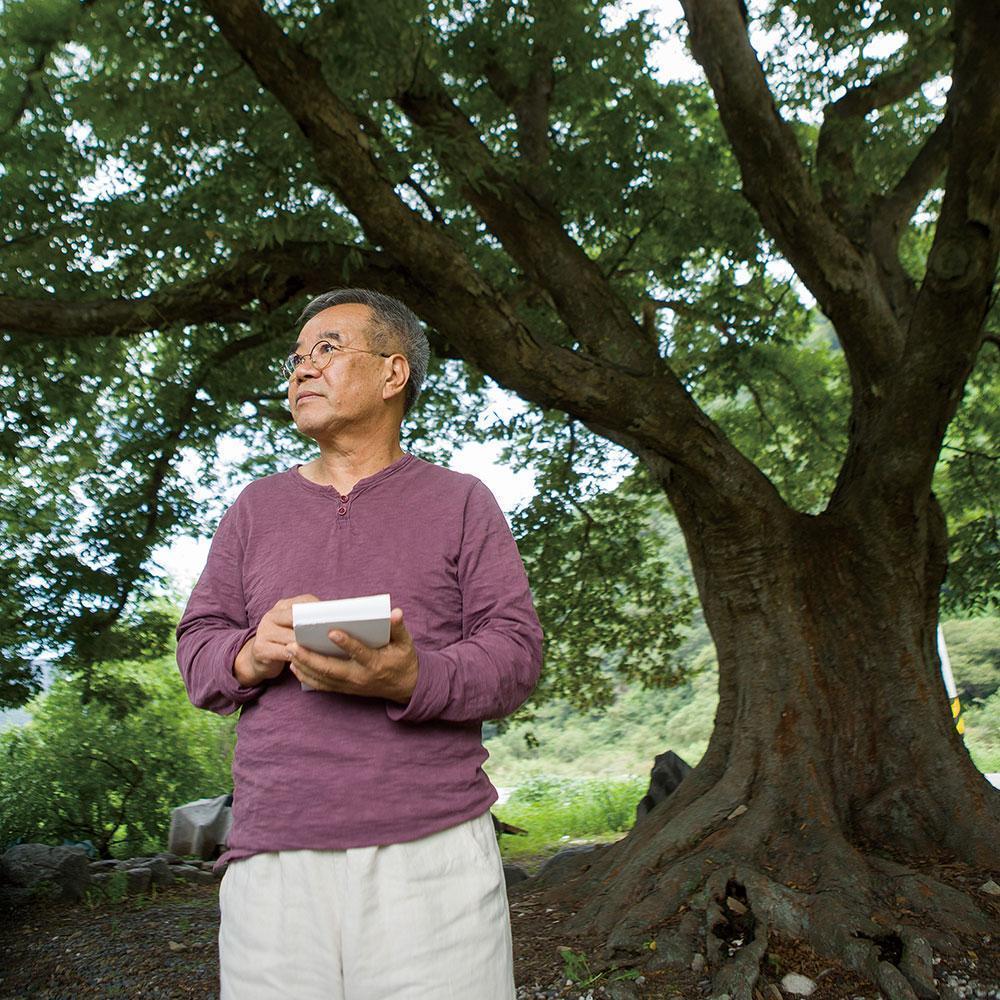
I know many people ask you to give lectures. What kind of things do you talk about with your audience?
In order to survive the Fourth Industrial Revolution, you need two things – community-based life and humanity – which cannot be replaced with artificial intelligence. We need to follow the order of nature to restore humanity. Think about how people lived in the country long time ago. At the time, rural communities maintained basic order based on principles such as “Do not steal from others. Do not say rude things. Do not lie.” Even though rural occupants didn’t have a lot of academic knowledge, they learned how to live well by living with nature as well as working and doing things together within their community. People living in a rural village followed and relied on nature. To them, their daily lives were full of artistic spirit and happiness. Meanwhile, even though people in modern society are living more affluently than in the past, they feel unhappy since they are only trying to live by the standard of others. You can be happy only when you follow the laws of nature, rather than trying to fit yourself into another’s standard of living.

I heard you also run writing classes. What do you teach in these classes?
I think no one can simply write well from the beginning. I began reading a lot of books after I became a teacher. I obtained various ideas from books, which allowed me to write well and became a poet. Writing is about expressing your thoughts. The easiest thing you can do to learn to write well is to read newspapers. I get up at 3:00 in the morning and watch soccer game highlights, movie reviews and drama highlights on the Internet. You can understand the changes of an era by watching dramas and movies. When you watch Marvel Cinematic Universe films, you understand nationalism and capitalism. If you do not want the government and capitalism to control your life, you need to have power, meaning you need to study. I myself logon to about 10 newspaper sites on the Internet. Newspapers run editorials with different perspectives, so I always read each editorial. I also read poetry on the newspaper. Then I write in my diary about what I did the day before. At around 6:00 in the morning, I go out to take a walk and take a photo of the zelkova tree. It is the same tree, but it looks different every day. I share stories about my mundane routines with others. Learning is about fixing, changing and adjusting, and your life becomes new as a result. Making today different from yesterday, that is what we should learn and write about.
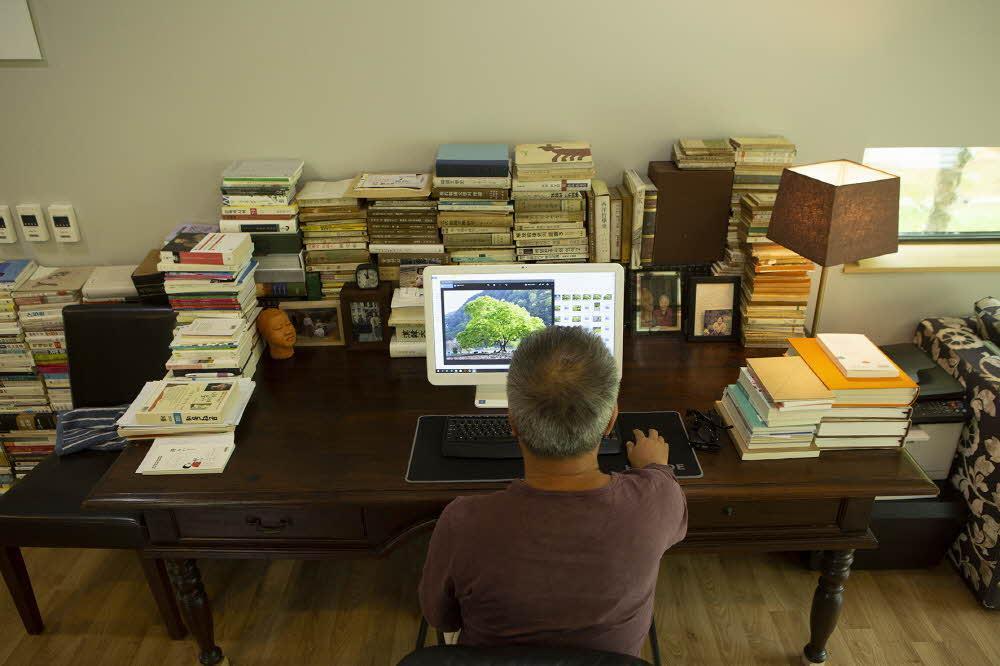
Do you think poetry and Kim Yong-taik can be valuable cultural tourism content?
Since our village is known to the public as the hometown of Kim Yong-taik, tourists visit the village and it is already becoming a cultural tourism content. However, I don’t want my town to be in the media spotlight because of me. Also, since it is a small town, I don’t want to cause the other village occupants any inconveniences. People call me the principal of the school I opened, but I rather be called the manager. I don’t want a high position. All I want is to write poetry. One thing I want to let others understand is that they too can discover happiness through reading and writing poetry. There lies the value and power of literature including poetry as a cultural content.
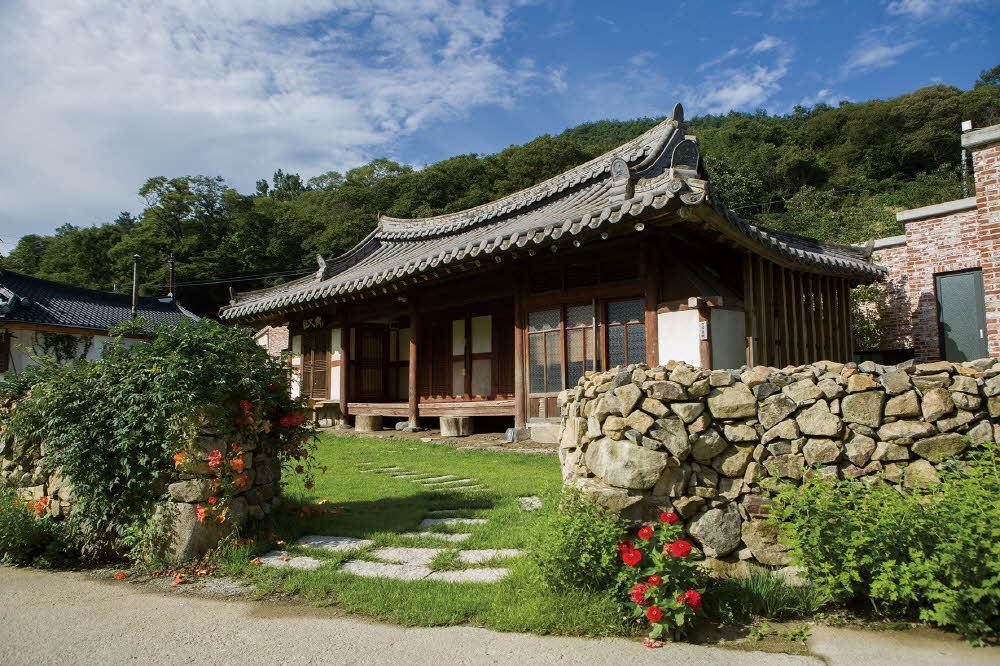
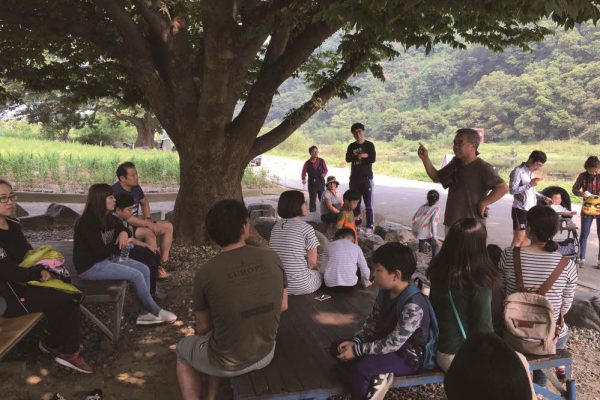
Lecture by Kim Yong-taik at the Small School
Visit the Small School to attend Kim’s lecture where he tells stories about his daily life such as his hometown, nature (including the Seomjingang River), and farming. Lectures are held at the library, on the floor, or outdoors. Group tourists can make reservations to attend his lecture and take a walk with Kim alongside the river at the front of the village.
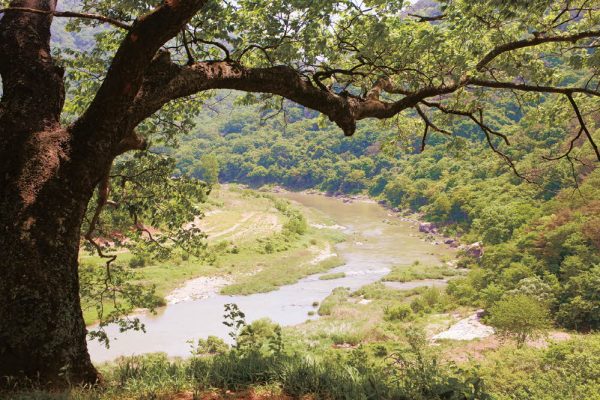
A Poetic Tree
A 500-year old zelkova tree stands on the left side of the entrance to the village. Under the tree a sign reads, “poetic tree”, and there is a small box. You can write a poem or a short essay and place it in the box. Kim will then choose some and exhibit them next to the tree.
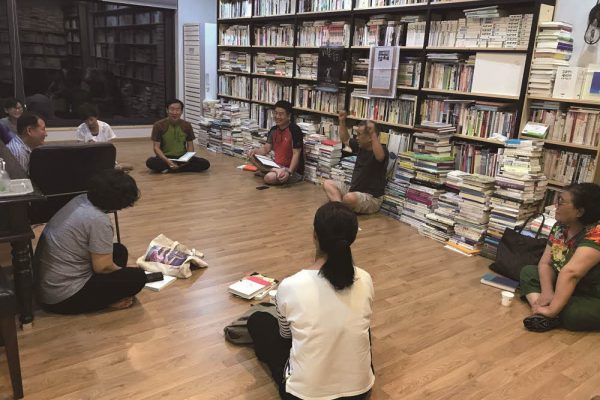
Kim Yong-taik’s Small School
Kim runs a writing class at the small school twice a month. Around 10 village occupants write short essays or hold public readings. They published a collection of poems written during one year titled “Do Not Touch Me.”
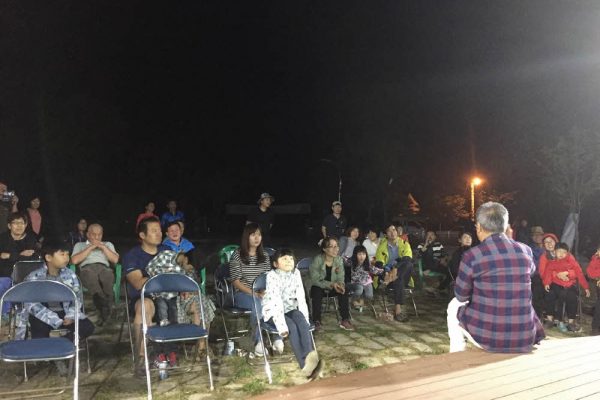
Autumn Literature Camp with Kim Yong-taik
Every autumn, the village runs a 2-day literature camp with Kim Yong-taik. The camp program is comprised of a lecture by Kim Yong-taik, a writing class, cultural performances by culture societies, and a walk along the Seomjingang River.
- Locations:
- Sari Village Campsite
- Address:
- 89-3 Cheondam-ri, Deokchi-myeon, Imsil-gun, Jeollabuk-do
- Website:
RECOMMENDED TOURIST ATTRACTIONS
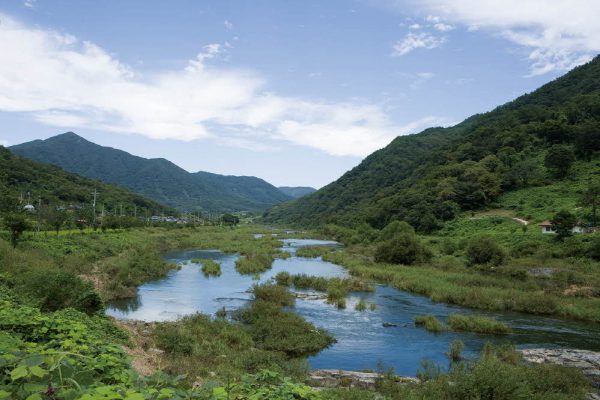
Seomjingang River Trekking Course
Among the Seomjingang River trekking course, the 4 km-section from Jinmoe Village (where Kim Yong-taik lives) to Cheondam Village is the easiest and most beautiful. There are several rocks inscribed with Kim’s poems, allowing you to enjoy poetry and nature as you walk through the section. Plus, you will discover peaceful rural sceneries as well.
- Course:
- Jinmoe Village – Cheondam Village (4 km)
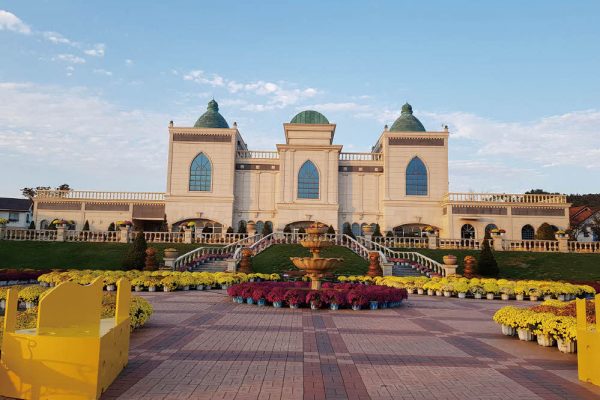
Imsil Cheese Theme Park
The Imsil Cheese Theme Park was created on an area that is the size of 19 soccer fields. The theme park is a recreational and cultural space offering various things to do, enjoy and eat. Several European-style experience halls run diverse programs including making pizza and Imsil cheese as well as making other traditional European foods.
- Address:
- 50 Doin 2-gil Seongsu-myeon, Imsil-gun, Jeollabuk-do Imsil Cheese Valley
- Operation Hours:
- 09:00-18:00 (Closed on Mondays)
- Tel.
- 063-643-2300
- Website:
- Price:
- Activity Course A: 21,000 won
INFORMATION
Kim Yong-taik Literary House
- Address:
- 16 Jangam 2-gil Deokchi-myeon, Imsil-gun, Jeollabuk-do
- Tel.
- 010-3684-6160













![[A ZONE] Gangnam Food Spot](https://m.dgram.co.kr/wp-content/uploads/2020/09/A존-알래스카3-특성이미지_S-324x160.jpg)
![[A ZONE] Gangnam Life Style](https://m.dgram.co.kr/wp-content/uploads/2020/09/로우클래식1-특성이미지_S-324x160.jpg)




